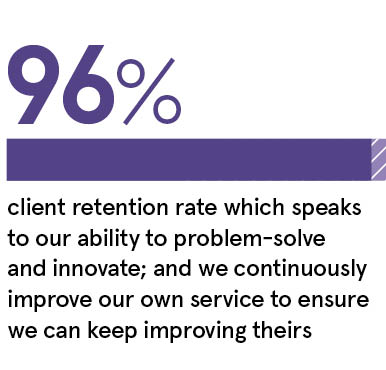Traditionally, the insurance sector has consisted of large organisations that could take time to analyse the various complexities sitting within their books and spend significant resources on building bespoke modelling tools to understand these complex dynamics.
However, the past two years has witnessed a digital injection, complete with regulatory sandboxes, and a common expectation of innovation to change the industry.
The new norm means that to provide digital guidance to policyholders, organisations have to follow suit themselves.
Ortec Finance, a specialist in ALM (asset-liability management), is looking to leverage its global experience and unique model-based approach to investment decision-making to not just facilitate insurance clients’ acceleration towards digital, but to accelerate in the right direction.
“Traditionally, insurance clients would have worked with software applications that took days to run and in the past that would have been fine,” explains the company’s managing director for Insurance, Marco Hoogendijk.
“However, given the uncertainty and opportunities digital insurance brings, together with a continued challenging investment environment, management teams are now demanding their organisations have the ability to respond more quickly to the complex questions they face.”
For this to be achieved, they require software solutions that have the ability to engage on a real-time basis more easily, while simultaneously being able to analyse future potential scenarios. 
Working primarily with large life insurance companies and pension plans, Ortec Finance boasts a sophisticated toolset that helps to evaluate both current and possible future market conditions via its Economic Scenario Generator, part of its institutional ALM solution which supports and informs the ultimate decisions being made by management.
Hoogendijk clarifies: “If you look at what we do in detail, we run a client’s balance sheet through 10,000 different economic scenarios for a range of alternative strategies.
“Using the analogy of a flight simulator, we simulate what would happen to the ‘plane’ on 10,000 different routes, through different economic ‘storms’. We then help management understand the implications of each route so they can either take action to avoid upcoming storms or prepare for unavoidable storms and understand which management actions can be taken to ensure the plane is able to navigate these challenging environments successfully.”
Understanding and conveying the implications of multiple economic landscapes is where Ortec Finance really adds value, preparing insurance companies on both the asset and liability sides for the next, possible major move in the market.
“We do this via our own private cloud solution we offer to our clients,” says Hoogendijk. “Within this environment they can carry out HPC (high-performance computing) which means they can report back to management with results in the most desirable timeframe.”
To this end, flexibility in the insurance space is also of vital importance so organisations have the leeway, as well as the means, to enact change from front to back, more efficiently. By offering a cloud environment where machine-learning and APIs (application programme interfaces) flourish, wider ecosystem integration is facilitated and flexibility is assured.
“We have a 96 per cent client retention rate which speaks to our ability to problem-solve and innovate, and we continuously improve our own service to ensure we can keep improving theirs,” says Hoogendijk.
A new, improved modular approach, where insurance companies’ different departments can subscribe to technological advancements that are specific to their domain, is testament to this philosophy. It also lays the foundations to help combat even bigger industry challenges yet to come.
Chiefly, as Hoogendijk says, these bigger challenges include understanding the impact climate change will have on insurance in the future.
“We will see interesting developments on both the asset and liabilities side as a result of climate-change implications,” he concludes. “This, in tandem with developments being made around big data and machine-learning, and also the role of alternative data to gauge how private assets are performing, will mean you have to be more turnkey and possess the ability to provide services from front to back to remain a strong player in the market.
“To achieve this, we have a dedicated insurance group to provide insights, tools and guidance for this journey, including different climate-change scenarios.”
For more information please visit www.ortecfinance.com
